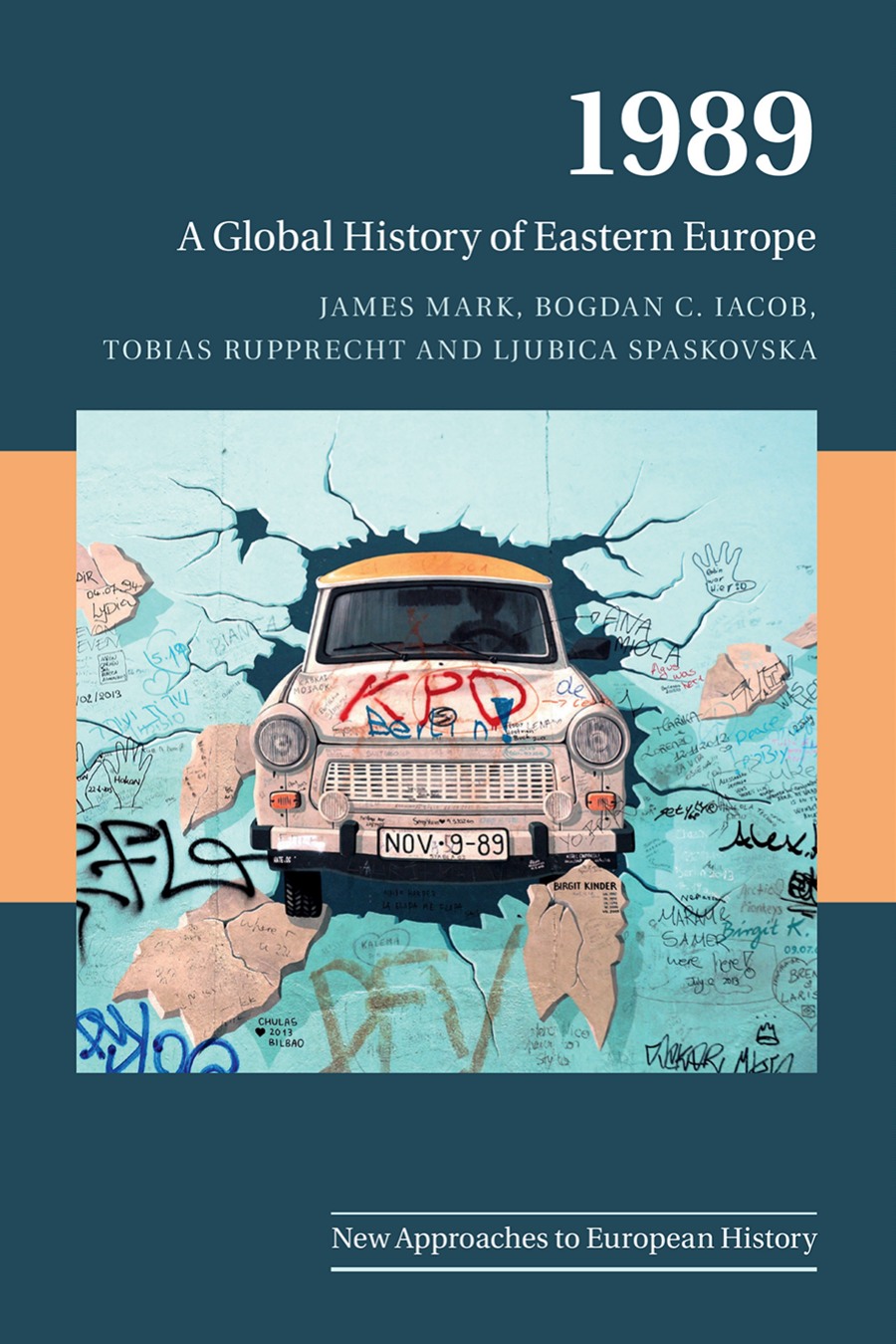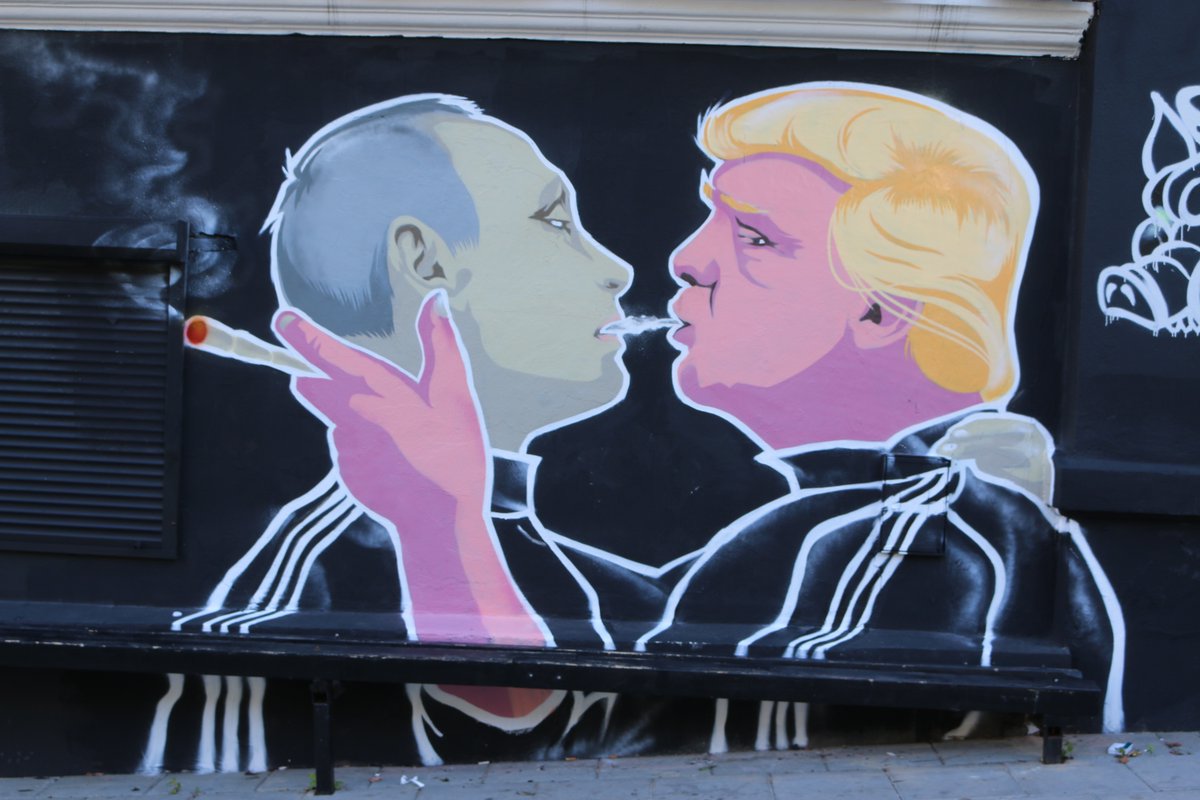James Mark, Bogdan C. Iacob, Tobias Rupprecht, Ljubica Spaskovska: 1989: A Global History of Eastern Europe (2019)
Filed under book | Tags: · 1989, authoritarianism, capitalism, central europe, communism, democracy, eastern europe, europe, european union, globalisation, history, human rights, illiberalism, internationalism, liberalism, market, migration, nationalism, neoliberalism, politics, post-communism, refugees, socialism, southeastern europe, soviet union, transition

“The collapse of the Berlin Wall has come to represent the entry of an isolated region onto the global stage. On the contrary, this study argues that communist states had in fact long been shapers of an interconnecting world, with ‘1989’ instead marking a choice by local elites about the form that globalisation should take. Published to coincide with the thirtieth anniversary of the 1989 revolutions, this work draws on material from local archives to international institutions to explore the place of Eastern Europe in the emergence, since the 1970s, of a new world order that combined neoliberal economics and liberal democracy with increasingly bordered civilisational, racial and religious identities. An original and wide-ranging history, it explores the importance of the region’s links to the West, East Asia, Africa, and Latin America in this global transformation, reclaiming the era’s other visions such as socialist democracy or authoritarian modernisation which had been lost in triumphalist histories of market liberalism.”
Publisher Cambridge University Press, Cambridge, UK, 2019
New Approaches to European History series, 59
ISBN 9781108427005, 1108427006
vii+372 pages
Reviews: Árpád von Klimo (H-Diplo, 2020), Tilmann Siebeneichner (German History, 2020), Nick Ostrum (Europe Now, 2020),
Interviews with co-author (James Mark): Ondřej Bělíček (A2larm, CZ, 2019), Ondřej Bělíček (Jacobin, 2020), Ronaldas Galinis (LRT.lt, 2020), Rūta Miškinytė (15min.lt, 2020, LT), Zoltán Ginelli (LeftEast, 2020, Part 2, Part 3).
Book summary (Eurozine, 2019).
Project website
Publisher
WorldCat
Cultural Anthropology: Lessons for Liberalism from the “Illiberal East” (2018)
Filed under journal | Tags: · anthropology, central europe, conspiracy, democracy, east-central europe, eastern europe, fake news, geopolitics, illiberalism, liberalism, politics, populism

“The cumulative effects of Brexit, the resurgence of populist politics in Europe, and the election of Donald Trump as president of the United States have given rise to the perception that Western liberal democracies are undergoing profound change, if not a bona fide crisis. Moreover, there is a sense that it is the political liberalism of the post–Cold War period—rather than its far less popular companion ideology of neoliberalism—that finds itself in disarray. As scholars and commentators rummage through their intellectual toolboxes for explanatory frameworks, many are turning to (post)socialist histories and experiences as heuristic devices for making sense of the upheavals in Western politics. In this Hot Spots series, we suggest that the postsocialist transition, as both discursive space and set of practices that attempted to make capitalists out of socialists and liberals out of totalitarians, renders the former socialist world a rich site for understanding the current shifts in the Western political landscape. We aim to make sense of this landscape in a way that is attuned to both long-term processes and to the state of emergency reinforced with each new wave of current events. Even though the ground appears to be constantly shifting beneath our feet, these essays insist that detailed, historically and geopolitically sensitive analysis of actually existing post–Cold War liberalisms is one key approach for making sense of the present.”
Edited by Dace Dzenovska and Larisa Kurtović
Publisher Society for Cultural Anthropology, Apr 2018
Hot Spots series
ISSN 1548-1360

